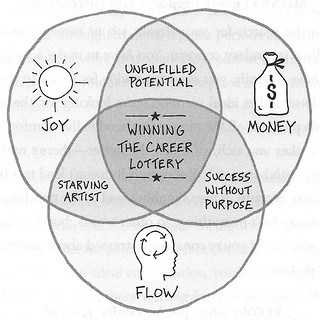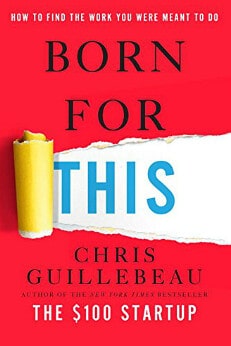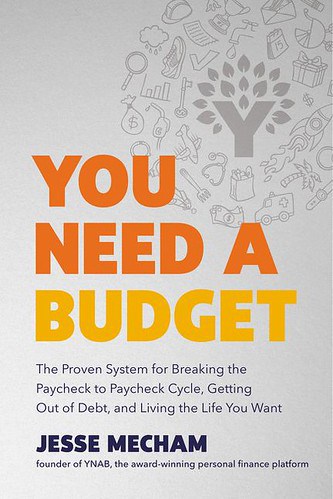Find A Job That You Love And Earn Money At The Same Time.

In 1987, Marsha Sinetar published You will earn money if you do what you love She urged readers to “follow their own hearts to the work of their dreams”. She encouraged readers to “follow their hearts to the work they dream about”.
Sinetar advocates what she calls Right Livelihood, which is doing your best in what you are good at.
Right Livelihood is the natural expression of this need. She wrote that Right Livelihood was the natural expression for this need. “When you choose work that you enjoy, it is easier to get things done and to get them done well. You will also be intrinsically motivated to succeed. Money, security, and other rewards are no longer your only payment.”
It sounds great to “Do what you enjoy” — who wouldn’t want an exciting job that pays the bills and is also fun? As many have noted over the last thirty years, this is generally bad career advice. People who believe they will have no problems if they follow their passions run the risk of being unable to pay the bills.
It is obvious that not all of the things you like to do can be a source of reliable income. For example, I enjoy videogames but I won’t make a lot of money playing Hearthstone. It would be foolish to even try.
Penelope Trunk, a career columnist , said this a few years back: “I’m a writer but I love sex even more than writing…I never sit up in the night wondering whether I should do sex or writing. Career decisions do not revolve around ‘what is my favorite thing? ‘”
Another problem is rarely mentioned. People often lose interest in the thing they used to value when they find their dream job. This is something I have experienced first-hand.
In 2006, when I began Get rich slowly, I was a salesman at The family box factory. Blogging was my fun way to escape from the day job I hated. I eventually made enough money from blogging to quit my day job selling boxes and write full-time. I was going do what I loved. Awesome, right? It was in many ways — but also quickly turned into a curse. It went from being a way to escape into a dull chore. This is one of the reasons that I sold this website back in 2009. When I bought the site again last fall, i thought hard and long about how to prevent falling into this trap again. (So far, so good!)
After all, I still think it is not bad to pursue your dream job. It’s worth pursuing, as long as your expectations are realistic (and you can be patient). It’s a challenge to balance what you are good at, your interests, and what others will pay you for.
The Intersection of Money, Joy and Flow
In 2016, my colleague and friend Chris Guillebeau released a book titled How to Find Your Work:.
Guillebeau says there are many paths to success in your career, but you should find the one that is most fulfilling, the one you were meant to do. This “best path” lies at the intersection of flow, joy and money.
Ideally:
- You should be happy with your work. Like Sinetar Guillebeau also believes that you should love what you do. It’s similar to the Konmari method, which advocates that you only own things that “spark happiness”. Guillebeau appears to be saying or that your work should “spark joy”.
- You should be paid for your work. There’s no point in pursuing a passion if you won’t get paid. Your efforts must be rewarded. Your work must fundamentally support and sustain your life.
- You should choose a career that allows you to use your strengths.
You can visualize the concept of a perfect job by using an illustration from the book.

It’s important to find a job that combines flow, joy and money. Talking about a perfect career is one thing, but finding a job in this sweet spot is another. Born for this is about that.
Clarification Guillebeau uses the term “flow”, but I do not like it. It does not match or the psychological definition. This creates confusion, rather than clarity. It makes more sense, I believe, to use the term “talent” or “skill”, rather than “flow”.
Find Your Dream Job
 The majority of Born for This The book, which is about 250 pages long, teaches the reader how to find their dream job and how to make it happen. Guillebeau has a lot to say. Here are a few of the ideas I like.
The majority of Born for This The book, which is about 250 pages long, teaches the reader how to find their dream job and how to make it happen. Guillebeau has a lot to say. Here are a few of the ideas I like.
Limit your options, then expand them
Guillebeau suggests that to find the work you’re meant to do, you should create a list of all possible careers, and then narrow it down to just a few dream jobs. Based on the concepts of Born For This I have created a simple activity that I believe can provide direction to those who are feeling lost in their career.
- First, be clear about your purpose. Be sure to create a mission statement before you continue. (Need help? (Need help? Here’s a PDF that describes , my method of finding a mission-statement.
- Spend the next fifteen minutes brainstorming possible careers. It’s crucial that you do not self-censor at this stage. Go crazy! List everything you can do as a job. List “Astronaut” if you’ve always wished to be an astronaut. I’m serious. Whatever you think of, write it down.
- Limit your options. Now is the time for rationality and practicality. Remove anything from your list that does not spark joy. Remove any option that does not seem to be a good source of income. Finally, eliminate any options that you do not have the skills for (or where developing those skills would be difficult).
- Choose your five favorites from the remaining options. If you only have five options, it’s okay. Ranking these dream jobs is easy. Just use any criteria that you want. The listed below are career paths you should consider for the long term.
Learn more about the fields you have chosen. You need to develop the skills necessary to succeed in these careers. Schedule informative interviews to learn more about the type of work that you are interested in. Use this list as a guide to plan your career over the next few months and years.
Learn the Right Skills
Guillebeau says that “improving the right skills” is essential if you want to increase your marketability in general, not just within your profession. You can climb up the career ladder if you improve your technical skills in your profession. If you improve your “soft skills” you will not only be a more effective employee, but also a better person .
Some useful universal skills include:
- Ability to write. You’ll have plenty of opportunities if you can write (or type) on paper. All companies need employees that can communicate.
- Public speaking. You can do anything if you are able to and willing to speak to others, especially in groups. I know several people who are great at public speaking. They can choose their employer and set their own salary. Not kidding.
- Negotiation. You can also use your negotiation skills to benefit your employer. can use negotiation skills on a personal level to increase salary, and get additional benefits. You can use this to your advantage in business by negotiating better prices with suppliers or convincing customers that they should pay more.
- Follow up and follow through. Do exactly what you promise to do and do it well. You will be a valuable employee no matter what you do if you can keep your promises (and sometimes even exceed expectations).
- Tech-savvy. Keep up with the latest technology (and remain current), whether it’s learning how to use your smartphone or using social media. People who are able to use the latest technology will always be in demand.
Soft skills are useful in any career, no matter what you do. Most of these skills will also be useful outside the office.
Become Indispensable
Guillebeau is a self-employed man. His career was built in large part on his ability to help others launch small businesses. He understands, however, that not everyone is interested in working for themselves.
can still you act like a small business owner, even if your are an employee. Guillebeau writes, “You’re self-employed in some way or another.” ” You are still self-employed even if you have a regular paycheck.
Amen!
Whether you’re working for someone else or for yourself, you are responsible for 100% of your income. The majority of people are passive in their approach to careers. They are satisfied with a job. They don’t do much (if any) to improve their abilities. They only do what is asked of them. When they are hired or receive a performance evaluation, they don’t bargain.
You are not the “majority of people” because you read Get Rich Slowly. You are a money manager, to use the language of my former site. You are responsible for your career, your finances, and your personal life. You know how important it is to manage your career like a business. It’s important to become indispensable to your employer, who is likely your biggest customer.
Note : To learn more about this topic, please see yesterday’s post How to grow your career.
Two key aspects are required to become indispensable.
- Increase your education. Your work-life earnings are more affected by your education than anything else. Always be learning. Attend conferences. Attend classes at a community college. You can also read books that are relevant to your profession. Learn what your colleagues do. Learn the “soft skills” that we discussed earlier and also gain technical knowledge. The more you know, the more money you’ll earn.
- Exceed your expectations Most workers only do what they need to survive. Some workers don’t even manage to do that! They do not take the initiative to improve and learn more. A valuable employee goes above and beyond what is asked. She does not wait for instructions; she knows exactly what she needs to do and takes action. She solves problems as they arise.
Take your career serious. Your job is not a place where you can waste time or merely tread water. It’s important. You can get ahead by taking on even the smallest of jobs.
I worked as a work study student for the Summer Activities Department during my sophomore year. It was my responsibility to answer the telephone every afternoon between 4 and 5 pm after my boss went home. All I did was answer the phone. I was never enthusiastic about my job. I answered the phone. I did my homework.
A student did the same thing as me, covering the phone in the morning before my boss arrived at work. He did, however, more than was asked. Much more.
We didn’t know it, but at the time our boss had a lot to do on campus. She pulled strings for the other student to get a coveted job in the admissions department. When I applied for the job that I really desired with the department of residence life, I did not get it. Later, I learned that my lackluster attitude in what appeared to be a meaningless job as a work-study student had played a major role in the decision not hire me.
It paid off that the other student made himself indispensable. I was held back by my lax attitude.
Bottom line? Be your own boss, whether you are looking for a dream job or otherwise. You will be able to open doors if you are so impressive that they cannot ignore you.









+ There are no comments
Add yours